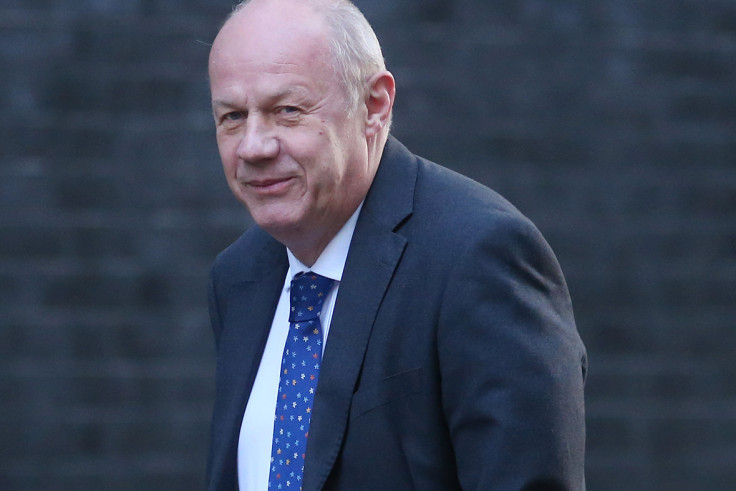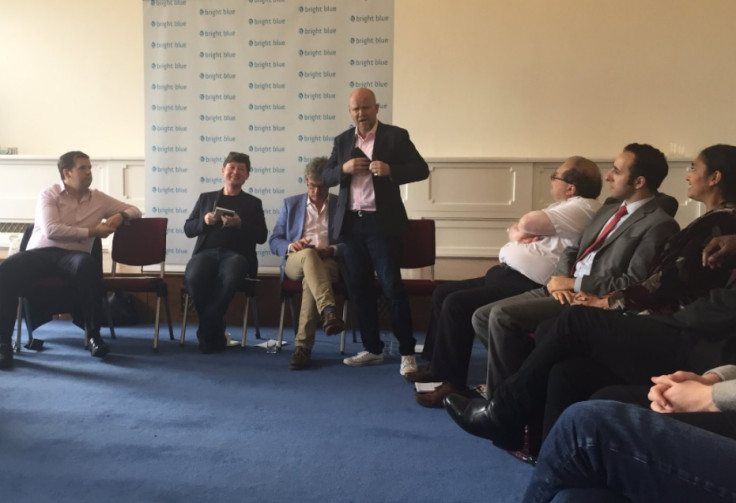Tories plot modernisation as 'ideological wet dream' of a manifesto is consigned to the dustbin
First Secretary of State Damian Green was the keynote speaker at the Bright Blue conference.

As thousands joined an anti-austerity march on Parliament on Saturday 1 July, a small group of Conservatives gathered in the plush confines of the British Academy for Bright Blue's Social Reform Conference.
The think-tank, founded in 2010, has become the voice of the socially-liberal wing of the Tory Party, with former Education Secretary Nicky Morgan and pro-EU firebrand Anna Soubry among its supporters. The organisation, which charges its 400 members up to £20 per year, secured quite a coup by having Damian Green address the conference.
Green, an Oxford university friend of Theresa May's, was promoted to first secretary of state as part of the prime minister's post-election reshuffle.
The top post, which former Chancellor George Osborne held under David Cameron, means he is effectively the second most powerful politician in the country.
Green used his speech to call for the Conservatives to "modernise" in a bid to attract more young voters.
An Ipsos MORI analysis of the election result, which saw the Tories lose their majority in the House of Commons, founded that under-44s swung towards Labour, whilst the over 55s sided with the Conservatives.
"I first started writing pamphlets and making speeches saying the Conservative party needed to modernise in the late 1990s, when we had 165 MPs. Now we have 317," he said.
"I am not standing here and saying all we need to do is keep calm and carry on. We need to think hard, work hard, and change hard. We need to show how Conservative values and policies can work for those parts of the country, and parts of the population, who have turned away from us.
"It is now clear that the root of our failure to win a majority last month lies in those aged 18 to 35, among whom Labour led the Conservatives by over 30 percentage points."
The senior Tory MP was also forced to defend his party's deal with Northern Ireland's Democratic Unionist Party (DUP), with one attendee claiming that some of the party's members had connections to loyalist terrorist organisations.
"Just as all parties need to modernise, the DUP recognise that they need to change as well," Green said. "They have changed very significantly and there are values that we share – we are a unionist party, we are party that's determined to get the best of Brexit and also to make sure that doesn't damage the delicate situation with the border between Northern Ireland and Ireland."
That was one of the few mentions of the UK's splits from the EU which Green made, with the major issue of Brexit missing from the main section of the first secretary of state's speech.
On Saturday morning David Davis' former special adviser, James Chapman, reportedly claimed that May had "hamstrung" the Brexit Secretary by setting "red lines" for him in the two-year-long divorce talks. Green, like May, Chancellor Philip Hammond, the prime minister's new chief-of-staff Gavin Barwell, campaigned for a Remain vote at the EU referendum.

'An ideological wet dream'
With Green's speech over, the conference held a number of breakout sessions, including a discussion on educational reform.
Toby Young, the co-founder of the West London Free School and director of the New Schools Network charity, claimed that so called comprehensive-grammar free schools – "Gromps" – held the "secret sauce" to deliver the best results in the secondary education sector.
Former Bath MP Ben Howlett, meanwhile, attacked his party's manifesto pledge to extend grammar schools across England. He said Nick Timothy, one of May's former top aides, had no "concrete evidence" for the proposal, branding the policy as an "ideological wet dream".
Elsewhere, Stephen Crabb, the former work and pensions secretary, discussed international development. The Conservative MP claimed that supporters of international aid on the centre-right had been "cowed into silence by the relentless assault" on the 0.7% of national income.
"Theresa May was right to resist the attempt to submerge the Department for International Development into the Foreign Office (FCO) straight after the election. Reform of aid spending is needed to help rebuild support for 0.7% but a merger with the FCO risks worse aid outcomes," he said.
"We should be world leaders in using aid to harness the power of global markets, science and technology to eradicate hunger and preventable diseases.
"Keeping our promises on aid will be a litmus test of whether Brexit leads to a confident outward-looking Global Britain, or a retreat into nativism."
With Brexit talks ongoing and the Tories attempting to recover from their election blow, the ideological battle for the soul of the party has begun.
© Copyright IBTimes 2025. All rights reserved.





















